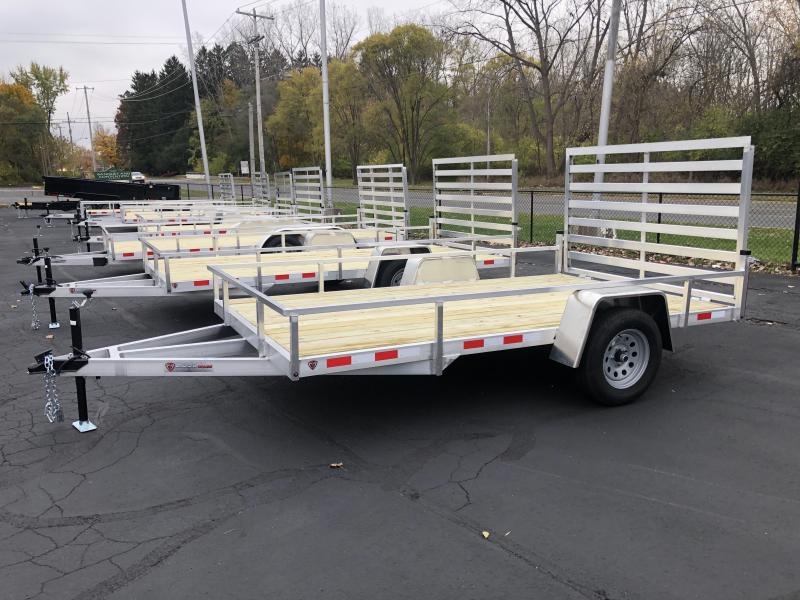When it comes to purchasing a utility trailer, one of the most crucial factors to consider is the size and capacity of the trailer. Choosing the right size and capacity ensures that your trailer meets your hauling needs and operates safely. In this article, we will delve into the importance of understanding different sizes and capacities when buying utility trailers.
Understanding the Basics: Size and Capacity
Utility trailers come in a wide range of sizes and capacities, catering to various hauling requirements. The size of a utility trailer refers to its dimensions, including length, width, and height. Capacity, on the other hand, pertains to the maximum weight the trailer can safely carry, which includes the weight of the trailer itself and the load it's carrying.
Matching Trailer Size to Your Needs
Selecting the right trailer size is vital to ensure that you can transport your cargo efficiently and securely. The size you choose should depend on the type of items you plan to haul. For smaller loads, a compact utility trailer might suffice, while larger loads may require a longer and wider trailer.
1. Small Utility Trailers:
Small utility trailers are often ideal for homeowners, DIY enthusiasts, and small businesses. They're perfect for tasks like transporting garden equipment, furniture, or small construction materials. These trailers are compact, easy to maneuver, and can often be towed by smaller vehicles.
2. Medium Utility Trailers:
Medium-sized utility trailers strike a balance between size and capacity. They're suitable for a wide range of applications, including moving household items, transporting appliances, or carrying medium-sized machinery. These trailers are versatile and can handle moderately heavy loads.
3. Large Utility Trailers:
If you have substantial hauling needs, large utility trailers are the way to go. They are designed for heavy-duty tasks such as moving furniture during a home renovation, transporting vehicles, or carrying construction materials. These trailers typically have a higher weight capacity and provide ample space for bulkier items.
Considering Weight Capacity
Choosing the right weight capacity is equally important as selecting the right size. Exceeding a trailer's weight capacity can lead to safety hazards, increased wear and tear on your vehicle, and potential legal issues. To determine the appropriate weight capacity, calculate the total weight of your cargo along with the trailer's weight.
1. Payload Capacity:
Payload capacity refers to the maximum weight your trailer can carry, excluding its own weight. It's crucial to account for the weight of your cargo and ensure it doesn't exceed this limit. Overloading a trailer can strain its components and affect its stability on the road.
2. Gross Vehicle Weight Rating (GVWR):
GVWR is the maximum weight the fully-loaded trailer can safely handle, including both the trailer's weight and the weight of the cargo. It's a critical specification to consider to ensure safe towing and prevent damage to your trailer and towing vehicle.
3. Towing Vehicle Capacity:
Remember that your towing vehicle also has its own towing capacity. The combined weight of the loaded trailer and the towing vehicle should not exceed the towing capacity of the vehicle. Be sure to consult your vehicle's manual for towing capacity information.
Conclusion
When you set out to buy utility trailers, understanding the diverse sizes and capacities available is paramount. Carefully assess your hauling needs and choose a trailer that matches the size of your cargo and offers an appropriate weight capacity. By making an informed decision, you'll not only ensure the safety of your cargo but also extend the longevity of your trailer and towing vehicle. Whether you're a homeowner, a tradesperson, or a business owner, the right utility trailer size and capacity will enable you to transport goods efficiently, effectively, and with peace of mind.


No comments yet